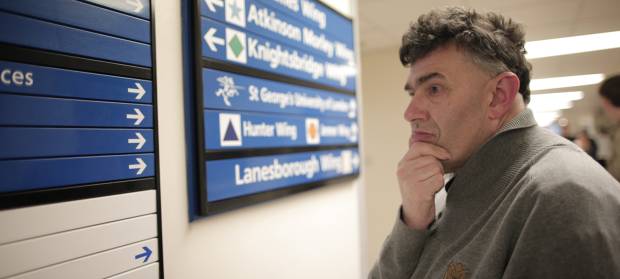Diana Ramsey is an Occupational Therapist, specialising in learning disability, and is currently training to be a consultant practitioner.
She writes here about her own personal experiences of the barriers faced by learning disability nurses, and her views on what being a learning disability nurse really means.
“What is an LD nurse, what do you do… Oh, so not a proper nurse?”
These disheartening words were reported last year in a blog by Zoe Wilson, a student learning disability nurse. They were said by hospital staff. As an Occupational Therapist working with people with a learning disability, I would argue that I’ve never met people who better meet the definition of a ‘proper’ nurse than learning disability nurses.
So what is proper nursing? This has been asked a lot in recent years. It was explored particularly in the Francis report in 2013, which revealed the damning failures in care experienced by patients at Mid-Staffordshire hospital.
As a result of all this, the ‘6 C’s’ were developed to be the benchmark of good nursing practice.
I’d suggest that these 6 areas - care, compassion, competence, communication, courage and commitment - are embodied in the learning disability nursing practice that I see every day.
Care
Care is a learning disability nurse's core business. Uniquely, they start with the person with a learning disability, their families and carers, rather than a condition or complaint.
An LD nurse empowers the individual to get the right health support, through the right channels, in the right way. They encourage health promotion, enabling and empowering people to know what is happening in their body, and in their mind.
Compassion
Compassion is defined by empathy, respect and dignity, governs a learning disability nurse’s practice. From dropping everything to ensure that a patient has their urgent health care needs met or is given the support they need in the end of their life to advocating that a patient is treated with dignity and is given the reasonable adjustments that they need, compassion drives learning disability nurses.
Competence
Competence means having the ability to understand a person’s health and social care needs. A learning disability nurse has both a good overview of all aspects of nursing, and an in-depth understanding of conditions that affect people with a learning disability more than the general population, such as autism or epilepsy.
Communication and courage
Communication and courage often come hand-in-hand. I can’t count the number of times where I have seen learning disability nurses fighting to inform colleagues, and trying to get people to see beyond the learning disability.
All too often, professionals just see the learning disability and not the treatable condition. In this respect they repeatedly tackle these areas day in and day out leading us to the final C, commitment.
Commitment
Commitment is perhaps the biggest challenge to a learning disability nurse’s role. With pressures on individual nurses, hospitals and services growing every day, remaining committed to advocating for people with a learning disability in order to provide better quality of care and reduce health inequalities is becoming more and more difficult. It is also becoming more and more important.
I’d say that these ‘6 C’s’ describe both a learning disability nurse and a ‘proper’ nurse and, in fact, are the sign of good professional working for all of us who work with people with a learning disability. To lose focus on these areas would be to lose sight of why we do what we do for the people we support.

 Diana Ramsey
Diana Ramsey